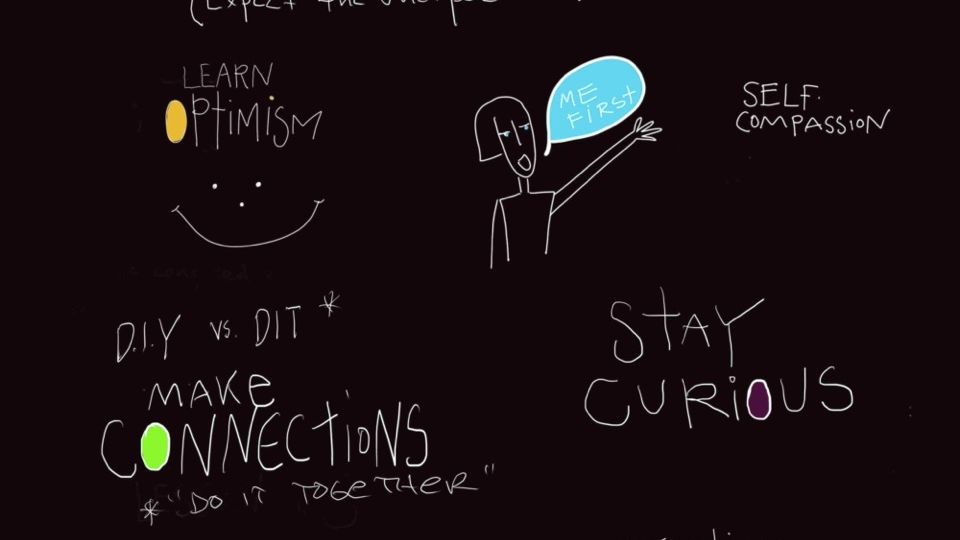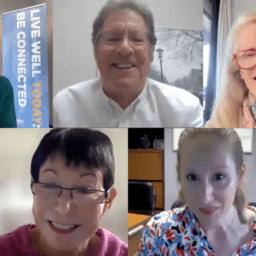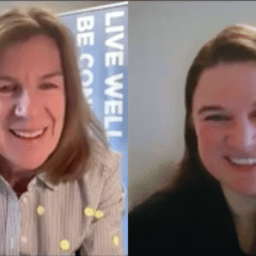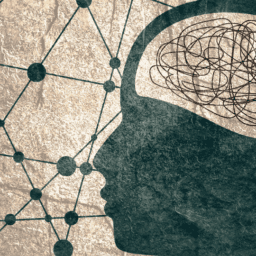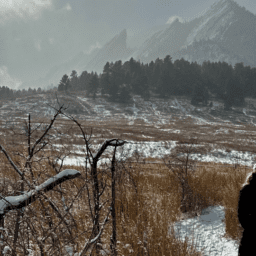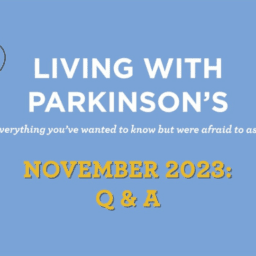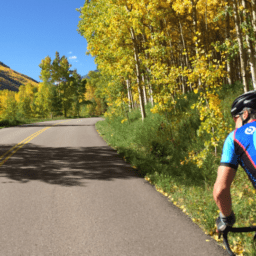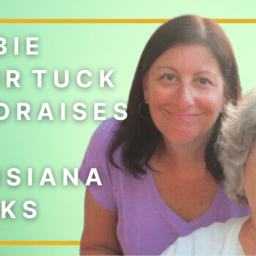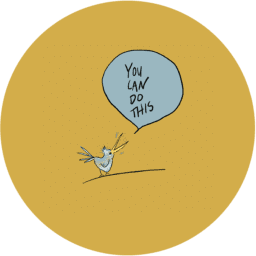Written by Connie Carpenter Phinney
I drew a simple list as a guidepost to help me make meaning from the lessons I’ve learned for my recent talk during our recent The Victory Summit Virtual Event: Care Partners. In that talk (which you can watch here), I shared how my experience at the 1984 Summer Olympics, where I won the gold medal in cycling, relates to being a Parkinson’s care partner. My mom, who had multiple sclerosis, was unable to travel to watch me race in Los Angeles, so she stayed at home with my dad and watched me on TV.
Growing up as I did with a parent who suffered from a chronic neurological illness uniquely prepared me for Davis’ diagnosis with young onset Parkinson’s. My father was an amazing role model. They had four children under the age of seven when she was diagnosed. We all learned to go with the flow, and my mom did her best to not give up in the face of disease.
From her, I learned the fine line between giving in and giving up. From my dad, I learned patience, resilience, and optimism. He showed me how to find humor during tough times. I learned grace and compassion from them both.
What have you learned during the care partner journey? It’s not easy to distill, but the talking points I’ve made will hopefully remind you that you are not alone, and that you can do hard things.
Being an elite athlete also taught me some “tricks,” many of which I’ve shared during our Care Partner Monthly Meetups and some that I’ll touch on here.
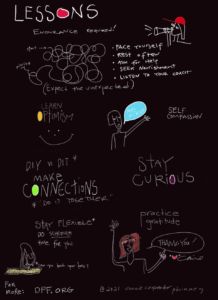 First, can you relate to the circuitous path we find ourselves taking? To go the distance, we obviously need endurance. As a former elite athlete, I got that from taking care of myself and daily training. Every athlete responds differently to training. Some train more than others. You alone know what you need to make your role sustainable; just don’t forget to pace yourself to ease the burden that comes with being a care partner. Beyond training, rest and nourishment are the secret to going the distance. Olympic athletes rest more than they train. Consider it a job requirement to rest.
First, can you relate to the circuitous path we find ourselves taking? To go the distance, we obviously need endurance. As a former elite athlete, I got that from taking care of myself and daily training. Every athlete responds differently to training. Some train more than others. You alone know what you need to make your role sustainable; just don’t forget to pace yourself to ease the burden that comes with being a care partner. Beyond training, rest and nourishment are the secret to going the distance. Olympic athletes rest more than they train. Consider it a job requirement to rest.
Can you embrace the concept of Do It Together (DIT) rather than Do It Yourself (DIY)? Assess, build, and refine your care team partners. Don’t be afraid to ask for help, even with little things. As humans, we are wired for connection, and most of us thrive when helping others. With a good team in place, you can carve out more time for yourself and provide more balanced care for your person with Parkinson’s. As an athlete, this means building a team over time (mechanics, physical therapist, coach, trainer, supporters, friends). What does team mean to you?
I consider myself an incurable optimist. I acknowledge the hard times, and know they help me be better prepared. But purposefully channeling more energy into denoting the good times and planning for good outcomes serves me. I mindfully practice optimism. When you are negative around a topic, ask yourself how it serves you. This is not to be confused with “toxic positivity”; I’m not asking you to always be positive. It’s perfectly okay to acknowledge you are not fine. I am, however, suggesting you have the power to move yourself to a positive mind space.
For me, simply letting the beauty of a good sunset wash over me can change my outlook. What makes you smile?
Staying flexible in terms of scheduling is required for a person with Parkinson’s and their care team. But when you schedule time for yourself, try to make it fail-proof. Line up support, build a strong team, and make sure you have backup.
Cultivate curiosity for overall well-being. Being curious is fun. Learning new things or diving into old areas of interest will help you navigate tough times. It’s another form of nourishment. We live in the age of information disseminated via many channels, and one of my favorite activities is listening to podcasts while out walking. “Poetry Unbound” is one of my favorite series; it lifts me out of myself. I listen to many scientific podcasts, too; they open doors to learning something new. In other words, they help me to flourish. For one of my friends, it’s crocheting, while another paints. What helps you flourish?
Finish each day with a small gratitude practice. I’m grateful to you for reading this. Take care.
join the CARE PARTNER MONTHLY MEETUP
During these one-hour sessions, Connie Carpenter Phinney (and other care partner special guests) hold some space to discuss the concerns, challenges, and questions that many Parkinson’s care partners have today. Learn more and sign up here.
To download this post as a PDF, click here.
get the every victory counts manual for care partners
Do you have the Every Victory Counts Manual for Care Partners! Released in 2021, this resource is available at no cost in print and digital versions. To learn more and request your copy, click here.


